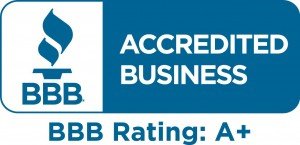How important are personality tests in determining if a candidate can fit into a company’s corporate culture? Many companies, including Fortune level ones, have integrated these tests into their hiring process, but I’m curious what you think.

Although this may not be for everyone, many experts say personality tests are excellent indicators to determine a candidate’s willingness to cooperate, leadership ability and management style. In fact, the Wall Street Journal wrote an article a few years back named, True or False: These Tests Can Tell if You Are Right for This Job stating, “Companies as varied as electronics retailer HHGregg Inc., HGG, rental-car agency Avis Budget Group Inc. CAR, and Sprint Nextel Corp. all use personality tests to help assess job applicants for conscientiousness, extroversion or other traits that may be useful in forging a successful career—or, alternatively, derail one.”
Most companies have their version of personality tests, and some companies even work with organizations like the one mentioned in the article or recruiters to provide a professional assessment on a candidate’s personality.
Over the years, we’ve seen an abundant amount of personality or behavioral questions. It’s hard to know which personality questions are the best to use for your company. That’s when you really need an expert. If you’re serious about venturing down this path, be sure to do the research. Below are some great examples featured by Anne Dranitsaris, Ph. D. author of the Behavioral Interview Guide are:
Have you ever participated in a formal (360 degree feedback) or informal process that provides you with feedback from your direct reports about your leadership style or the impact of your leadership style on employees?
Have you ever had to deal with a demotivated group of employees? How did you handle it?
How would you describe your leadership style? What positive impact does it have on others? What negative impact does it have on others? Give me an example of each.
Do you use minimal personality questions in your hiring process or do you have an entire personality test? How important would you say it is for companies to use personality tests to find the right candidate for their corporate environment?
ABOUT THE AUTHOR, Ingrid Moore
Ingrid Moore is the Founder and CEO of Corporate Resources of Illinois, an employment & staffing agency located in Schaumburg, IL who assists employers with finding the right hire. For more info, follow us on our LinkedIn Company Page, or follow us Corporate Resources of Illinois‘s Google+ page.




